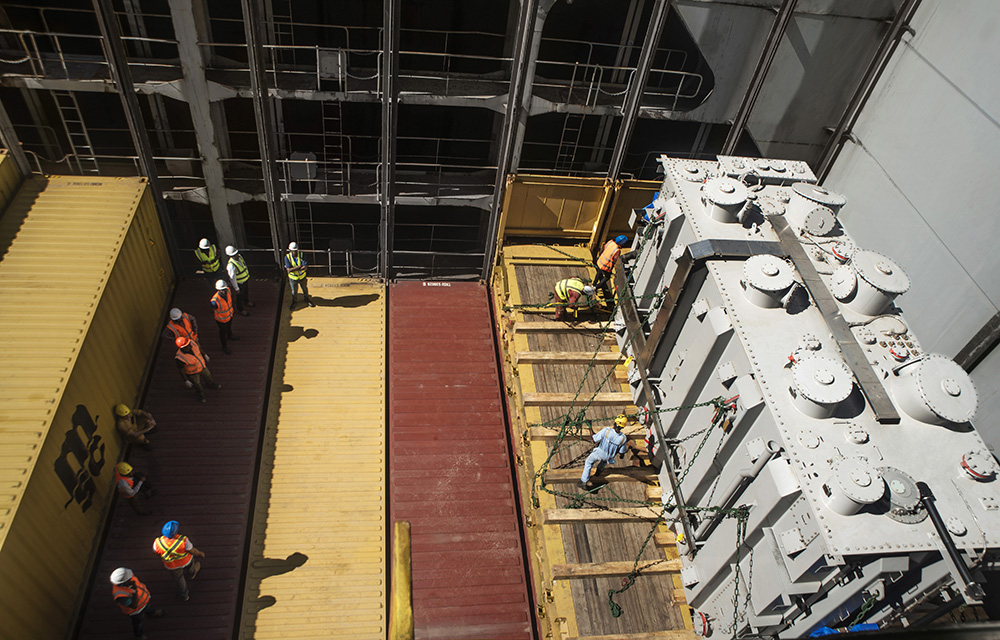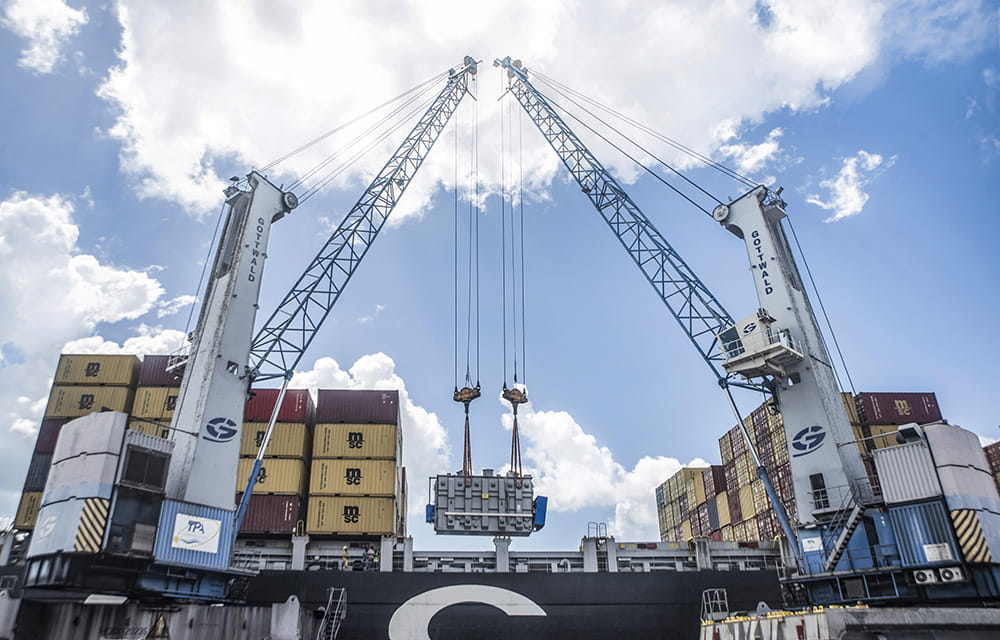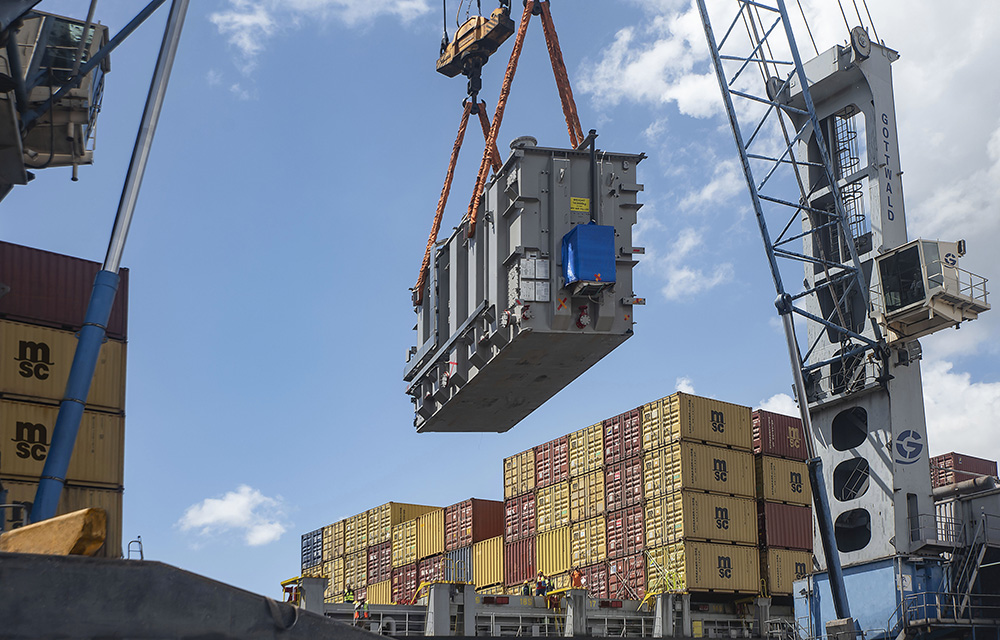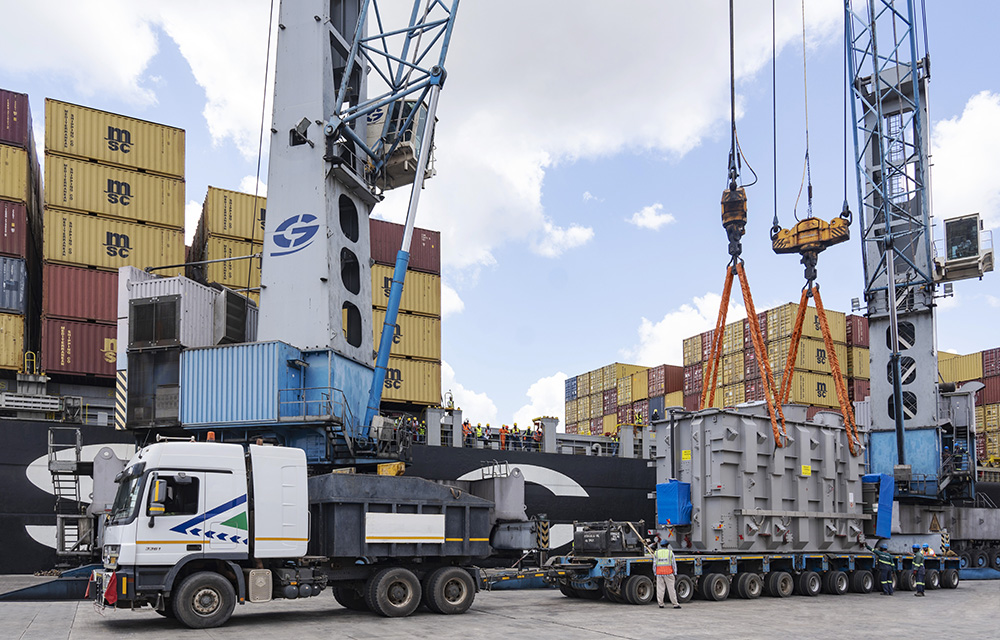
/en/newsroom/stories/how-msc-is-supporting-the-supply-of-electricity-to-millions-of-households-in-tanzania

In the face of chronic power challenges hindering Africa's development—ranging from insufficient generation capacity to low connectivity, poor reliability, and high costs—MSC Africa’s leading supply chain partner emerges as a crucial player in catalysing change. It has recently shipped 30 transformers to Julius Nyerere Hydro Electric Power Plant project Tanzania from Mundra Port, India.
The ongoing project nestled along the Rufiji River in Stiegler’s Gorge, Morogoro Region, southwest of Dar es Salaam is intended to address two key things - generate a robust electricity of 2115MW as well as water capacity for 17 million families. Additionally, the dam is controlling waterflow to protect the environment from the risks of floods and swamps
The African transportation partner of choice
"At MSC, we are confident that our involvement in Tanzania's energy sector will catalyse future breakthroughs. Our recent shipment to Dar es Salaam exemplifies our steadfast commitment to fuelling growth and success throughout the continent," comments Noel Quiambao, Managing Director at MSC Tanzania.
Tanzania's dedicated efforts to combat electricity shortages and drive industrialization through hydro power plant projects underscore the nation's commitment to sustainable industrialization and the transition to renewable energy sources.
To date, MSC has successfully transported multiple loads of transformers, collectively weighing an impressive 750 MT, to Dar es Salaam. These transformers, rated at 175MV and 220/132/11KV – 3PH, PT Tanesco, play a pivotal role in Tanzania's ambitious mission to develop five hydro power plant projects. Aligned with the government's vision to electrify millions, these initiatives also seek to fortify industrialization and promote the adoption of renewable energy—a truly inspiring narrative in the making. Once the project is finalized, these transformers will elevate the transmission voltage from 14 kV to a substantial 400 kV, marking a significant leap in capacity to 2,100 MW, with an annual production of 5.9 GWh.
Paskal Madede, Sales Manager at MSC Tanzania adds, "This shipment exemplifies the vast potential within Tanzania's energy sector and its pivotal contribution to the nation's economic advancement. With our specialized shipping services, we are dedicated to fostering the growth and prosperity of Tanzania's energy industry." He also emphasizes the critical nature of handling such equipment, singling out the significance of port crane weight limits, meticulous safety measures, and careful gear selection to ensure equipment security during transit.
The capacity to handle
This shipment not only exemplifies the vast potential within Tanzania's energy sector but also highlights its pivotal contribution to the nation's economic advancement. With specialized shipping services, MSC is dedicated to fostering the growth and prosperity of Tanzania's energy industry.
The transportation of heavy and fragile components, such as transformers, to remote power plants in Africa presents unique complexities and challenges. These locations underscore the critical role of logistics in ensuring the success of hydro power plant installations, spanning shipping, freight, and rail operations. As Anna Chambiri, Import Manager at MSC Tanzania, aptly puts it, "Only logistics experts of MSC's calibre possess the acumen to fully grasp the indispensable safety protocols, specialized container solutions, and cutting-edge transportation technologies indispensable for safeguarding these crucial components."
Utilizing breakbulk solutions, MSC is unwavering in its commitment to identifying the optimal transportation solution for specialized cargo. Within its vessels, cargo is allocated to specially prepared beds equipped with multiple flat racks. This fosters a secure working environment for stevedores and aligns with the stringent compliance standards outlined in the IMO CSS Code Annex 13. As an integral part of its meticulous planning and feasibility assessments, the company harnesses the power of 3D modelling to vividly illustrate the handling, stowage, and lashing requirements. Furthermore, the dedicated team at MSC places a paramount focus on mitigating losses and preventing claims, particularly for exceptionally large or heavy cargo, ensuring a seamless and secure delivery process.
"As MSC actively supports Tanzania's transition to green energy and industrialization, we reiterate the significance of this story in highlighting the collaborative efforts aimed at addressing the challenges of sustainable industrialization in Africa,” conclude, Noel Quiambao.



